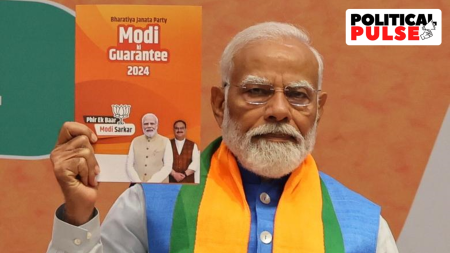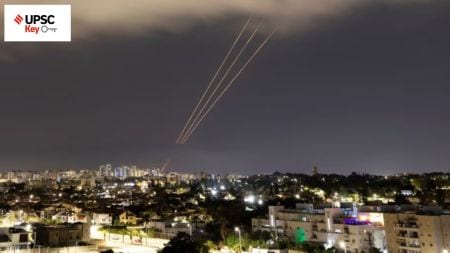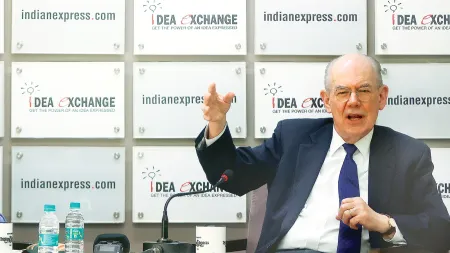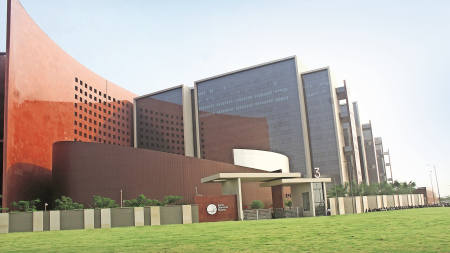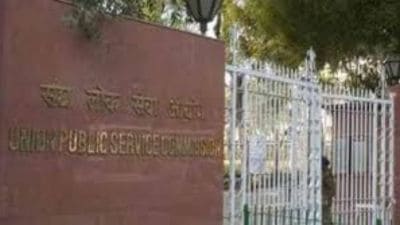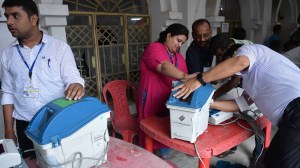- India
- International
Road work hits another wall in Gadchiroli
Since the April 30 Naxal attack killing 15 security personnel, all such work in the district is at a halt.
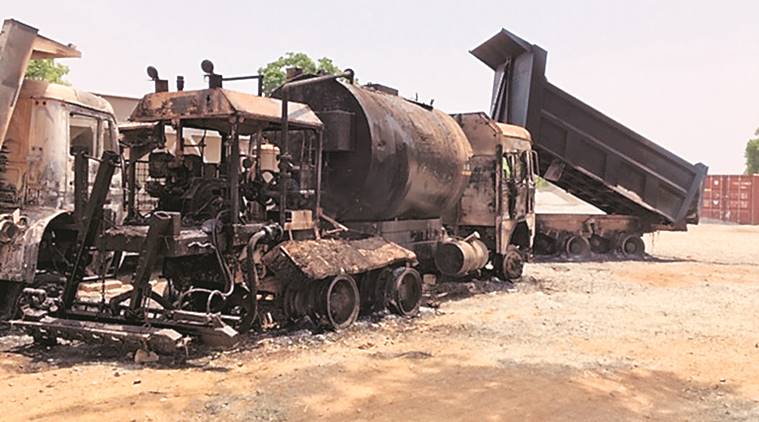 Naxals attacked a road building party, set ablaze 30 vehicles in the April 30 attack
Naxals attacked a road building party, set ablaze 30 vehicles in the April 30 attack
It has been six years since Naxals attacked his employees in Sawragaon in Dhanora tehsil, but thinking about his road crew escaping with “a mere beating” still sends shivers down Bhushan Samarth’s spine.
“They had just finished building a road ahead of Korchi and were shifting the machines back when they were accosted. The Naxals took away my project manager and beat him up. I keep thinking that if I had been there that day, the Naxals would not have left me alive,” says Samarth, a partner at PCC Constructions, which is based in Gadchiroli.
The latest major Naxal attack in Gadchiroli also involved a road building party. On April 30, Naxals ambushed one and set ablaze around 30 vehicles. A Quick Response Team on its way to investigate was targeted next, killing all 15 security personnel and the civilian driver. Ever since, all road work in the district has come to a halt.
A few months earlier, in December 2018, 14 vehicles belonging to a road contractor working in Etapalli tehsil had been burnt by Naxals.
In 2009-10, the Ministry of Home Affairs had cleared construction of 34 roads and bridges at a cost of Rs 947.06 crore as part of its Road Requirement Plan-1 for Left Wing Extremism-affected areas. In February 2018, the Union Ministry of Rural Development gave its nod for 43 roads and bridges spanning 167.82 km more at an expense of
Rs 229.71 crore under a Road Requirement Plan -2.

However, violence at regular intervals in this area, where Left Wing Extremists and security forces have been engaged in a four-decade-long war, has kept the pace of construction crawling.
Next month, three vital projects that are part of the Road Requirement Plan-1, cleared a decade ago, are expected to be completed — a 7.51-km-long bridge across Indravati river, a 13.5-km road in Mulchera and Dhanora tehsils, and a 17.5-km stretch in Aheri and Sironcha talukas. The 1.4 km-long Lanckchen Bridge is expected to be completed by September.
IPS officials who served in Gadchiroli in the late ’80s and early ’90s point out that they had recommended building the river bridges back then. “We cross the rivers in boats to visit villages and to attend meetings in Andhra Pradesh. When it rains, there is no way of going to the other side. There has been talk of building bridges for nearly 30 years,” says a senior Maharashtra Police officer.
But officials say that in the face of Naxal attacks, construction can happen only in fits and starts. S K Mehta, who heads a construction firm in Nagpur, says that after each attack, they have to wait for relative peace before resuming work. “Meanwhile, it is us contractors who bear the losses.”
Between roads and bridges, bridge work is more treacherous. “While working on a bridge, you have to camp in one place for at least six months. With roads, you can move ahead a couple of kilometres every two days,” Samarth points out.
Since Road Requirement Plan-2 was brought to the table, it has taken a year and seven rounds of tendering for contractors to be even appointed for 36 projects. For the other seven, another tender call is on. Given the risks involved, few are willing to apply.
A PWD official says they persuade the contractors through incentives, relaxed tender conditions, and security cover. “The tender rate in Gadchiroli is 30% higher than in other districts. We also give extensions whenever there is interruption of work,” says Rajiv Gaikwad, Superintendent Engineer, PWD, Gadchiroli.
A contractor who asked not to be named points out that police cover can sometimes backfire. “Seeking protection makes you an even bigger target for Naxals,” he says.
What slows down construction further is the district’s fierce monsoon, and labour being unavailable during the tendu leaf picking and paddy cultivation seasons. “Hardly any road work takes place between April and Diwali. It isn’t easy to convince men from outside Gadchiroli to come here,” says Samarth.
But, as field officers point out, the only way to dispel misconceptions regarding the State is such development work. The district police sends monthly reports to departments on the need for roads, schools or hospitals in a specific area. Should this gap be filled, points out an official, “People will know that whatever they think about police and the government is not necessarily true… Once people know about the world, they will move away from Naxals.”
Apr 16: Latest News
- 01
- 02
- 03
- 04
- 05




